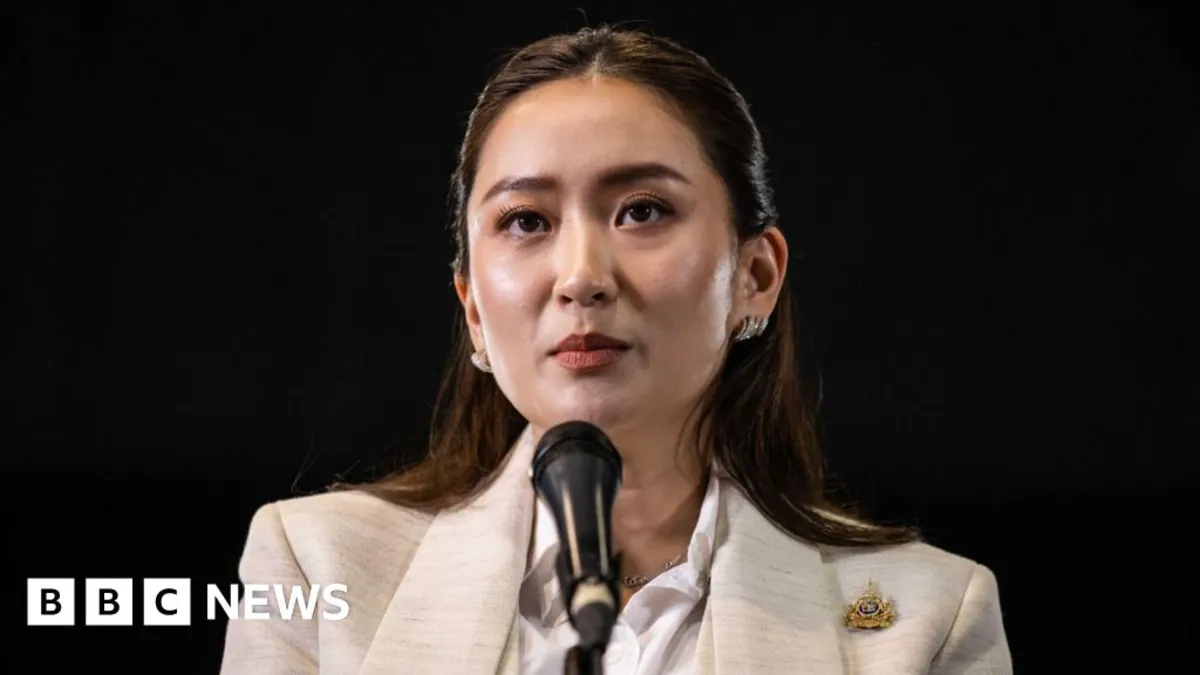
Thailand's political landscape has been shaken to its core following the recent removal of Prime Minister Paetongtarn Shinawatra by the Constitutional Court. This significant development not only plunges the nation into political turmoil but also delivers a substantial blow to the Shinawatra dynasty, one of the most powerful political families in Thailand. The court's decision stems from allegations of unethical behavior related to a leaked phone call that occurred in June, where Paetongtarn was recorded referring to Cambodia's former leader, Hun Sen, as "uncle" and voicing criticisms of the Thai army amid escalating border tensions with Cambodia.
The controversial phone call, which was leaked by none other than Hun Sen himself, severely tarnished Paetongtarn's reputation. Critics swiftly accused her of undermining the integrity of the Thai army, a critical institution in the country. In a decisive ruling on Friday, the court's nine judges voted six to three against Paetongtarn, determining that her actions constituted a violation of the ethical standards expected from someone in her high office. The court further expressed concerns about her personal relationships, suggesting they appeared to favor Cambodia over Thailand’s national interests.
In its ruling, the Constitutional Court dismissed Paetongtarn's defense, which claimed that the call was merely a personal negotiation aimed at fostering peace without resorting to violence. The court stated that her actions led the public to question whether her motivations were genuinely in Thailand's best interest or if they were more aligned with Cambodia's agenda. Despite acknowledging the court's verdict, Paetongtarn maintained her position, insisting that her intentions were focused on saving lives amid rising tensions along the Thai-Cambodian border.
This border conflict escalated shortly after the leaked conversation, culminating in a five-day clash that resulted in numerous casualties and forced hundreds of thousands of residents to flee their homes. The precarious situation highlights the delicate nature of Thai politics, particularly in the context of the Shinawatra family's long-standing influence.
Paetongtarn, who is only 39 years old, had joined the Pheu Thai Party in 2021 and quickly rose to prominence after her predecessor, Srettha Thavisin, was also dismissed by the Constitutional Court for unethical conduct related to appointing an ally with a criminal history to his Cabinet. The process for selecting her successor will unfold in parliament, where the Pheu Thai Party currently holds a slim majority. The party's main coalition partner, the conservative Bhumjaithai Party, has withdrawn its support following the controversy surrounding Paetongtarn's leaked call.
While parliament is not required to dissolve in order to choose a new leader, a majority of members must support one of the five registered candidates. Among the frontrunners is Chaikasem Nitisiri, a 77-year-old former justice minister and Pheu Thai candidate. Anutin Charnvirakul from Bhumjaithai is also considered a strong contender for the position.
The Shinawatra family has a storied history in Thai politics, having overseen multiple governments. Paetongtarn’s removal marks a significant moment in this dynasty, as she becomes the third member of her family to have their premiership abruptly cut short. Her father, Thaksin Shinawatra, was ousted in a military coup in 2006, while her aunt, Yingluck Shinawatra, faced a similar fate when she was removed by the Constitutional Court in 2014.
Although Thaksin has retired from formal politics, he remains a potent figure in the background. However, the future of the Shinawatra name and its influence in Thailand remains uncertain in light of recent events. As the nation braces for a leadership transition, the political landscape will undoubtedly continue to evolve, reflecting the complexities of Thai governance and the enduring legacy of the Shinawatra family.